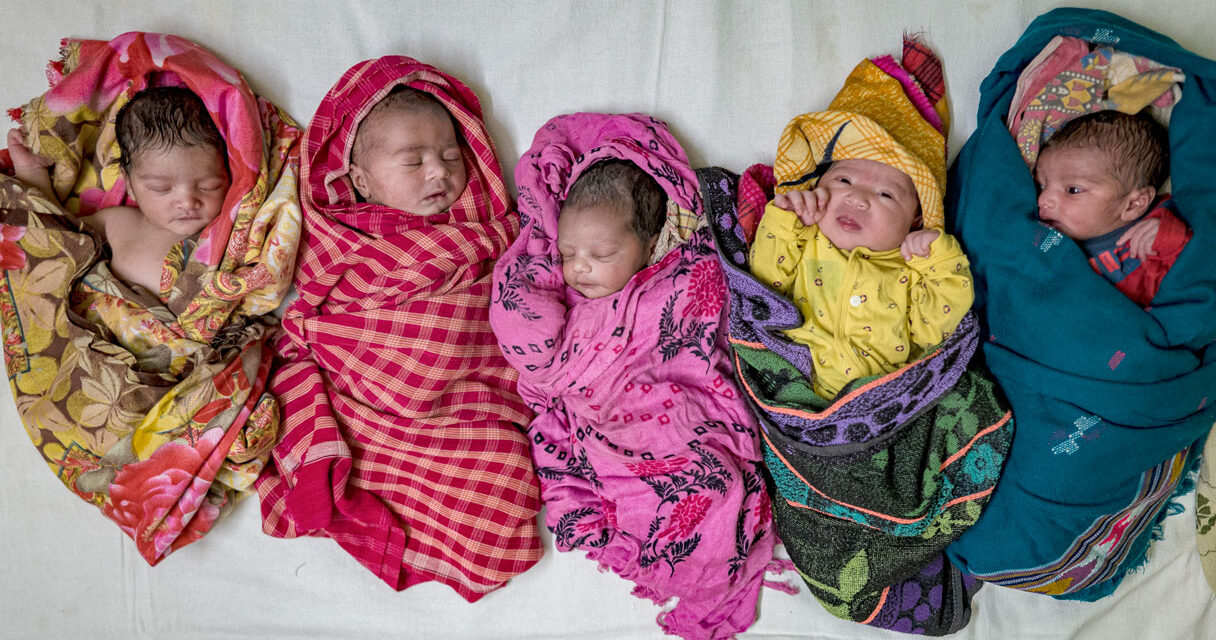Landmark Research in Rural Bangladesh Offers Insights into Stress Physiology and Epigenetic Programming
A groundbreaking study led by a global-health researcher at UC Santa Cruz has shed light on the intricate relationship between environmental interventions and early childhood health. The research, published in Nature Communications, provides compelling evidence on how a comprehensive set of interventions can influence stress physiology and epigenetic programming in young children, potentially shaping their lifelong health trajectories.
The study, titled “A cluster-randomized trial of water, sanitation, handwashing and nutritional interventions on stress and epigenetic programming,” conducted in rural Bangladesh, involved a large-scale randomized controlled trial. More than 5,500 pregnant women and their children participated, making it one of the most extensive studies of its kind. The participants were divided into seven groups, each receiving different combinations of interventions, including clean drinking water, sanitation, handwashing facilities, and nutrition counseling with supplements. The outcomes were compared with a control group that received no interventions.
The findings revealed significant improvements in the stress-response system and reduced levels of oxidative stress and DNA methylation among children who received the integrated interventions. Oxidative stress, a precursor to various diseases such as diabetes, cancer, and Alzheimer’s, was notably diminished. Additionally, DNA methylation, a process influenced by environmental conditions, was found to be reduced, potentially mitigating adverse health outcomes.
Audrie Lin, an assistant professor of microbiology and environmental toxicology at UC Santa Cruz and lead author of the study, highlighted the rigorous research design, emphasizing the importance of experimental interventions and control groups for robust conclusions. The study’s scale and design set it apart from previous research in stress physiology and epigenetics, which often lacked such controls.
“This study represents a significant advancement in our understanding of how environmental interventions can impact a child’s health at the genetic level,” Lin stated. “The integrated approach we employed yielded tangible improvements in physiological markers, underscoring the importance of addressing environmental factors in promoting child health.”
One distinctive aspect of the study is its relevance to low-resource regions, where access to clean water and sanitation is limited. Previous research in high-income countries may not fully capture the challenges faced by populations in such areas. Lin emphasized the global significance of the findings, noting that interventions targeting environmental factors could have far-reaching health benefits, particularly in resource-constrained settings.
The study’s implications extend beyond academic research, offering practical insights for policymakers and public health practitioners. By demonstrating the effectiveness of physical interventions in improving stress physiology, the study suggests that such measures could be more feasible to implement than psychosocial interventions, especially in low-resource contexts.
Lin underscored the potential for further research to explore the long-term effects of early interventions on health outcomes. The ongoing monitoring of participants in the WASH Benefits trial could provide valuable insights into the lasting impacts of environmental interventions on health trajectories.
“This trial serves as a powerful platform to uncover the links between early interventions and lifelong health,” Lin remarked. “Understanding these connections is crucial for developing targeted strategies to promote health and well-being from early childhood through adulthood.”
The study was funded by the Bill & Melinda Gates Foundation and the National Institute of Allergy and Infectious Diseases of the National Institutes of Health, reflecting the significance of the research in addressing global health challenges. As researchers continue to delve into the complexities of environmental influences on health, studies like this offer hope for a healthier future for children worldwide.












